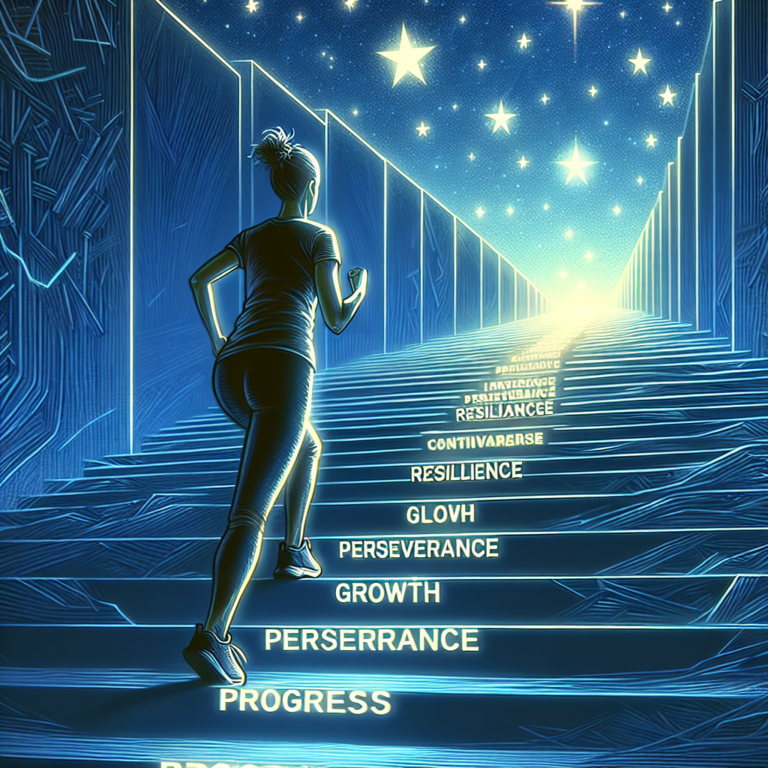
Strengthening the Mind: How Self-Improvement Fuels Resilience
Introduction
In an age characterized by rapid change and increasing demands on our mental and emotional faculties, the importance of resilience has never been more evident. It’s not just about bouncing back from adversity; it’s about growing stronger and more capable in the face of challenges. Strengthening the Mind: How Self-Improvement Fuels Resilience is not merely a catchy phrase; it serves as a guiding principle for anyone looking to thrive in their personal and professional lives. Imagine facing life’s obstacles with unwavering confidence, a clear sense of purpose, and the serenity to tackle whatever comes your way. This article will explore how self-improvement directly contributes to building that critical resilience.
The Foundations of Resilience
What is Resilience?
At its core, resilience is the ability to adapt and recover from adversity. Psychologists describe it as a quality that enables people to overcome trauma, stress, and setbacks, but it goes beyond mere survival. Resilience is about thriving under pressure and emerging from difficulties with new insights and skills.
Why Self-Improvement Matters
Self-improvement is the active pursuit of personal growth through various means, such as education, self-reflection, and skill development. The relationship between self-improvement and resilience is intricate: the more equipped we feel in various aspects of our lives, the better our ability to handle stress and adversity.
The Science Behind Self-Improvement and Resilience
The Psychological Impact of Self-Improvement
Self-improvement practices such as mindfulness, exercise, and continued education have a proven psychological impact. They help us develop a growth mindset, which is essential for resilience. Studies have shown that those with a growth mindset view challenges as opportunities for learning rather than insurmountable barriers.
Table 1: Factors Contributing to Resilience
| Factor | Description | Relation to Self-Improvement |
|---|---|---|
| Adaptability | Adjusting to change | Learning new skills |
| Emotional Regulation | Managing emotions | Mindfulness practices |
| Problem-Solving | Finding solutions | Educational pursuits |
| Social Support | Building a support network | Connecting with others |
Real-World Case Studies
Case Study 1: John’s Journey Through Adversity
Background
John lost his job during an economic downturn, leading to significant emotional distress.
Self-Improvement Actions
He engaged in self-improvement activities, including online courses to upskill and daily meditation for mindfulness.
Outcome
John not only found a new job but also became a more adaptable and resilient individual. The self-improvement he invested in contributed to his mental fortitude, making him better equipped to face future challenges.
Case Study 2: Sarah’s Transition from Burnout to Empowerment
Background
A corporate executive, Sarah experienced burnout due to unmanageable stress levels.
Self-Improvement Actions
She implemented strategies like time management training, physical fitness, and weekly therapy sessions.
Outcome
Sarah transformed her lifestyle, turning her challenging experience into an opportunity for growth. This enabled her to redesign her work-life balance, proving that Strengthening the Mind: How Self-Improvement Fuels Resilience is not just a theory but a practice.
Analysis of Case Studies
Both John and Sarah exemplify resilience fueled by self-improvement. Their journeys emphasize that the tactics employed—whether upskilling through online courses or engaging in therapy—facilitate resilience. This reinforces the idea that Strengthening the Mind: How Self-Improvement Fuels Resilience can manifest in numerous, individualized ways.
Practical Strategies for Self-Improvement and Building Resilience
1. Embrace a Growth Mindset
Encouraging an internal dialogue that fosters a growth mindset is key. Replace “I can’t” with “I can learn” to encourage flexibility and adaptability.
2. Engage in Continuous Learning
Pursuing new knowledge equips you with tools to tackle challenges. Online courses, workshops, and reading can enhance your skillset.
3. Practice Mindfulness
Mindfulness techniques, such as meditation and deep breathing exercises, encourage emotional regulation, helping you manage stress effectively.
4. Build a Support Network
Surrounding yourself with supportive individuals provides emotional resources when challenging situations arise.
Table 2: Self-Improvement Techniques and Their Benefits
| Technique | Benefits |
|---|---|
| Mindfulness | Reduces anxiety and increases focus |
| Continuous Learning | Enhances adaptability and skillset growth |
| Physical Exercise | Boosts mood and improves mental health |
| Support Networks | Provides emotional resilience and guidance |
Overcoming Common Challenges in Self-Improvement
1. Time Constraints
It can be challenging to find time amidst work and personal responsibilities. Incorporating small self-improvement activities into your daily routine can yield significant benefits over time.
2. Lack of Motivation
Setting small, achievable goals can help combat feelings of low motivation. Celebrate small victories to reinforce the practice of self-improvement.
3. Fear of Failure
Recognize that failure is often a stepping stone to success. Emphasizing learning over perfection opens up new avenues for growth.
Conclusion
Strengthening the Mind: How Self-Improvement Fuels Resilience isn’t just a theoretical concept; it’s a powerful life strategy. By investing in self-improvement, individuals can cultivate the resilience needed to face everyday challenges, adapt to new circumstances, and thrive in an ever-changing world. Remember, the journey to resilience begins with taking that first step towards self-improvement. Embrace the opportunities that come your way, and transform yourself into a more resilient individual.
FAQs
1. What is resilience?
Resilience is the ability to adapt and recover from adversity. It’s essential for coping with stress and life challenges.
2. How can self-improvement foster resilience?
Self-improvement equips individuals with the skills and mindset necessary to tackle difficult situations, thus enhancing their resilience.
3. Are there specific activities that build resilience?
Yes, activities such as mindfulness practices, physical exercise, and continuous learning significantly contribute to building resilience.
4. How do I develop a growth mindset?
Developing a growth mindset involves reframing challenges as opportunities for learning and fostering a positive internal dialogue.
5. Can resilience be trained?
Absolutely! Just like physical fitness, mental resilience can be developed and strengthened through consistent self-improvement practices.
In summary, Strengthening the Mind: How Self-Improvement Fuels Resilience is a testament to the endless potential within each of us. By prioritizing our growth and well-being, we can all cultivate greater resilience and truly embrace life’s challenges.















